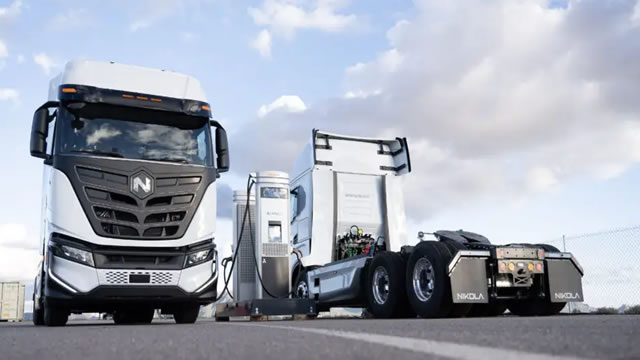Nikola Corporation’s Bankruptcy: What Does It Mean for the Electric Trucking Industry and Consumers?
During a hearing in the Delaware Bankruptcy Court on Thursday, lawyers for electric trucking startup Nikola Corporation revealed that the company might sell its remaining assets as early as April. This announcement comes after Nikola’s founder and executive chairman, Trevor Milton, resigned in September 2020, following a short-seller report that questioned the company’s business practices and technology.
Impact on the Electric Trucking Industry
Nikola’s bankruptcy could have significant implications for the electric trucking industry. The company had been a major player in the emerging market, with plans for producing hydrogen fuel cell and battery-electric trucks. Nikola’s bankruptcy could create an opportunity for competitors, such as Tesla and Rivian, to gain a larger market share. However, it also raises concerns about the viability of electric trucks as a commercial transportation solution, especially given the high costs associated with developing and producing these vehicles.
Impact on Consumers
For consumers, Nikola’s bankruptcy could mean delays or cancellations of orders for their electric trucks. The company had previously announced pre-orders for its Nikola Two hydrogen fuel cell semi-truck, with a price tag of $2 million per unit. It is unclear how many of these orders have been fulfilled, and whether customers will receive refunds or be able to switch to another electric truck manufacturer.
The Future of Electric Trucking
Despite the challenges faced by Nikola, the electric trucking industry is expected to continue growing. According to a report by BloombergNEF, the market for electric commercial vehicles is projected to reach $500 billion by 2027. However, the report also notes that the industry faces significant challenges, including high upfront costs, limited charging infrastructure, and the need for longer battery ranges.
Competition in the Electric Trucking Market
Other companies, such as Tesla and Rivian, are making strides in the electric trucking market. Tesla’s Cybertruck, which is set to begin production in 2023, has received over 1.5 million pre-orders. Rivian, which has already delivered its R1T electric pickup truck to some customers, is also expanding its production capacity and has secured partnerships with Amazon and Ford.
- Tesla: Model Y and Cybertruck
- Rivian: R1T and R1S
While the electric trucking market faces challenges, it also offers significant opportunities for innovation and growth. As the industry continues to evolve, consumers and businesses can expect to see advances in battery technology, charging infrastructure, and vehicle design.
Conclusion
Nikola’s bankruptcy is a setback for the electric trucking industry, but it also presents opportunities for growth and innovation. As the market for electric commercial vehicles continues to develop, companies like Tesla and Rivian are poised to take advantage of the opportunities and challenges that lie ahead. Consumers and businesses should stay informed about the latest developments in the industry and consider their options carefully when making purchasing decisions.
The electric trucking industry is expected to continue growing, but it also faces significant challenges. High upfront costs, limited charging infrastructure, and the need for longer battery ranges are just a few of the issues that must be addressed. Despite these challenges, companies like Tesla and Rivian are making strides in the market and offering innovative solutions to meet the demands of consumers and businesses. As the industry continues to evolve, it is important for consumers and businesses to stay informed and make informed decisions.
In conclusion, Nikola’s bankruptcy is a significant development in the electric trucking industry, but it is not the end of the story. The industry is expected to continue growing, and companies like Tesla and Rivian are well-positioned to take advantage of the opportunities and challenges that lie ahead. Consumers and businesses should stay informed and make informed decisions as the industry evolves.





